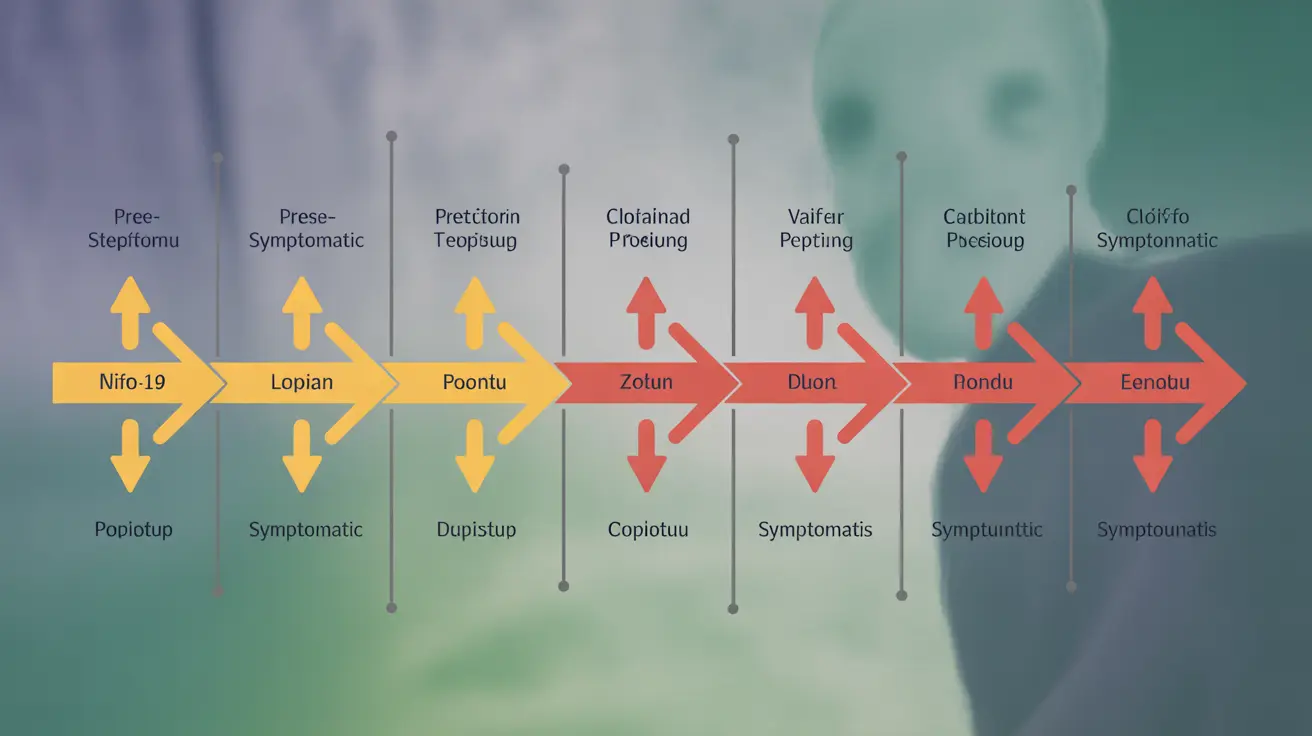Understanding how long COVID-19 remains contagious is crucial for protecting others and safely returning to daily activities. Whether you've tested positive or are caring for someone with COVID-19, knowing the timeline of infectiousness can help prevent transmission and manage isolation effectively.
This comprehensive guide explains the typical contagious period of COVID-19, factors that affect infection duration, and evidence-based guidelines for ending isolation safely.
Understanding the COVID-19 Contagious Timeline
The contagious period for COVID-19 typically begins 2-3 days before symptoms appear and can last for varying lengths depending on several factors. Most people are most infectious in the early stages of their illness, particularly the first 5 days after symptom onset.
Pre-Symptomatic Transmission
Research shows that many people can spread the virus before realizing they're sick. This pre-symptomatic transmission occurs because viral loads are often highest just before and as symptoms begin to appear, making early detection and isolation crucial for preventing spread.
Guidelines for Isolation Duration
Current health guidelines recommend different isolation periods based on symptom severity and individual circumstances:
- Mild to moderate cases: 5-10 days from symptom onset
- Asymptomatic cases: 5-10 days from positive test
- Severe cases or immunocompromised: May require longer isolation
- Must be fever-free for 24 hours without fever-reducing medication
Testing to End Isolation
Rapid antigen tests can help determine when it's safe to end isolation, though they're not perfect indicators. Two negative tests 48 hours apart, combined with improving symptoms, can provide greater confidence that you're no longer contagious.
Special Considerations
Immunocompromised Individuals
People with weakened immune systems may remain contagious longer than others. These individuals should consult their healthcare providers for personalized guidance on isolation duration and testing protocols.
Vaccination Status Impact
While vaccination may reduce the severity and duration of illness, vaccinated individuals who contract COVID-19 can still transmit the virus. However, they may clear the virus more quickly than unvaccinated individuals.
Frequently Asked Questions
How long is a person with COVID-19 contagious before and after symptoms appear?
People typically become contagious 2-3 days before symptoms appear and remain infectious for 5-10 days after symptom onset. The highest infectiousness occurs around the time symptoms first appear.
When can I safely end isolation after testing positive for COVID-19?
Most people can safely end isolation after 5 days if symptoms are improving and they've been fever-free for 24 hours without medication. However, wearing a high-quality mask around others for an additional 5 days is recommended.
Can people with severe COVID-19 or weakened immune systems be contagious longer than 10 days?
Yes, individuals with severe COVID-19 or compromised immune systems may remain contagious for 20 days or longer. These individuals should follow their healthcare provider's guidance for ending isolation.
Does being vaccinated or having a mild case affect how long I remain contagious with COVID-19?
Vaccinated individuals and those with mild cases may clear the virus more quickly, but they can still transmit the virus. Following isolation guidelines remains important regardless of vaccination status or symptom severity.
How effective are rapid antigen tests at determining if I am still contagious with COVID-19?
Rapid antigen tests are moderately effective at indicating contagiousness, as they detect high viral loads associated with infectiousness. Two negative tests 48 hours apart, combined with improving symptoms, provide the best indication that you're no longer contagious.
Remember to always follow current CDC guidelines and consult with healthcare providers for personalized advice, as recommendations may change as new variants emerge and research evolves.




